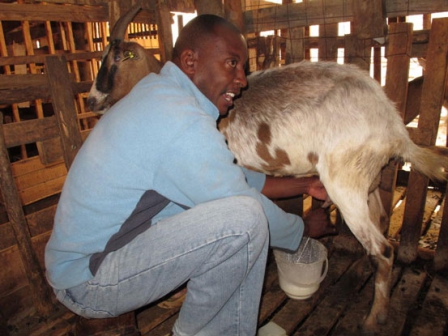×
The Standard e-Paper
Home To Bold Columnists

In my field work, I interact with a number of aspiring and practising goat farmers. One fallacy they hold, is the fact dairy goats unlike cows are not prone to diseases. That is false because though goats are hardy animals, if not well taken care of they are prone to attacks from various diseases.
Mastitis







